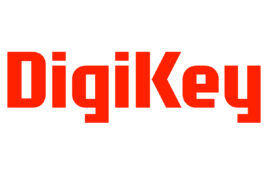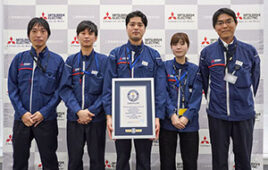Siemens Digital Industries Software and Voltaiq combine their strengths to offer unparalleled capabilities for battery manufacturing-focused companies. This collaboration aims to bring together the production-proven capabilities of both Siemens’ Insights Hub and Voltaiq’s Enterprise Battery Intelligence (EBI), customers can gain access to unparalleled capability specific to battery-domain companies to help rapidly scale operations smoothly, from initial testing to full-scale production lines.

Siemens is collaborating with Voltaiq to accelerate battery manufacturing.
“Our collaboration with Voltaiq aligns with Siemens’ ongoing mission to continue delivering Industrial IoT value. By integrating our efforts, we not only help to enhance operational decision-making but also assist our customers to accelerate the digital transformation of organizations, contributing to a new era in battery manufacturing,” said Raymond Kok, SVP and managing director, Cloud and Edge Foundational Services, Siemens Digital Industries CTO.
“The battery industry is struggling to scale and needs to improve quality and decrease scrap rates rapidly in order to stay competitive,” said Tal Sholklapper, CEO and co-founder, Voltaiq. “By joining forces with Siemens, we’re able to deliver a complete solution to help accelerate toward an electrified future.”
The world is relying on battery-powered products more than ever, from the largest vehicles to the smallest personal devices. Experts are forecasting a 14-fold increase in battery demand between 2018 and 2030 and a five-fold growth in battery cell production from 2020 to 2030 for electric vehicles (EVs) alone. The increased demand for battery manufacturing introduces numerous challenges and complexities to manage, including quality control, production efficiency, waste reduction, and cost minimization.
This collaboration aims to tackle battery manufacturing’s key challenges.
- Quality control and consistency: Consistently ensuring each battery meets the highest standards for performance and safety is challenging. Variations in manufacturing conditions can lead to inconsistencies in battery quality, so it’s important to maintain rigorous quality control throughout production. To stay competitive, manufacturers must accelerate material and design innovations and optimize battery costs while reaching energy density targets and ensuring safe battery utilization.
- Increasing production: Scaling up battery production to meet increasing demand, especially for electric vehicles, without compromising quality or efficiency is a significant challenge. This includes managing larger automated giga facilities at scale with consistent machine performance, while understanding – and responding to – the influences of complex machinery to the characteristics of battery cells.
- Process efficiency and waste reduction: Battery manufacturing involves complex chemical processes – a combination of batch process, continuous process and discrete process – that are complex to manage. This complexity can lead to waste and inefficiencies. Manufacturers strive to optimize these processes to minimize waste and improve overall efficiency, addressing both cost and environmental concerns.
- High costs: Manufacturers must find ways to constantly reduce costs without compromising product quality. These include the cost of raw materials, manufacturing processes, and technology development.
Siemens’ Insights Hub proven industrial IoT solutions combined with Voltaiq’s comprehensive suite of battery-specific monitoring, visualization, and advanced analytics capabilities provides customers with a seamless end-to-end solution for managing and optimizing battery cell manufacturing.
The joint solution addresses the challenges faced in the critical finishing stage of battery production, which makes up a significant portion of the production costs and time, by helping to reduce the risk associated with discovering problems late in the production cycle where yield and profitability are most likely to decrease.
Siemens Digital Industries
sw.siemens.com
Filed Under: Batteries, NEWS • PROFILES • EDITORIALS, EV Engineering, DIGITAL TRANSFORMATION (DX), ENGINEERING SOFTWARE




